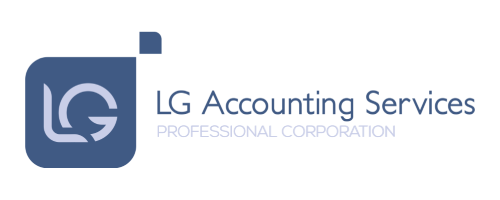Weekly Digest – 28 April 2021
Welcome back to our Weekly Digest. Read on for the latest updates and some ideas to help us all move forward.
Regional Municipality of Wood Buffalo Declared Local State of Emergency
The Regional Municipality of Wood Buffalo (RMWB), which includes the oilsands hub of Fort McMurray, has declared a local state of emergency as coronavirus cases surge across northern Alberta. Alberta has the highest rate of active COVID-19 cases in the country, and the municipality of 83,000 has more than 1,100 active coronavirus cases as of Monday.
Health Canada Authorizes First COVID-19 Self-Test
Health Canada issued Authorization with Conditions for LUCIRA CHECK IT COVID-19 Self-Test, making it the first self-test for individuals with or without COVID-19 symptoms. It delivers PCR quality molecular accuracy in 30 minutes or less at home and is expected to be available online for Canadians to order by June 2021 for approximately $75, excluding applicable taxes and delivery charges.
CHECK IT COVID-19 Self-Test, making it the first self-test for individuals with or without COVID-19 symptoms. It delivers PCR quality molecular accuracy in 30 minutes or less at home and is expected to be available online for Canadians to order by June 2021 for approximately $75, excluding applicable taxes and delivery charges.
Government Unveiled Back-to-Work Legislation to End Montreal Port Strike
The government announced back-to-work legislation on Tuesday to end a strike at the Port of Montreal, and later received opposition support that should guarantee its passage. This is after business leaders urged the government to quickly end the walkout that is disrupting supply chains.
The Canadian Union of Public Employees Quebec’s 1,125 longshore workers at the Port of Montreal, began their second strike in less than a year on Monday, demanding the Maritime Employers Association withdraw new work schedules they say are unfair.
New Canadian Angel Fund Network Announced $10 Million Debut
A new investment network has completed an oversubscribed first closing of $10 million. Archangel Network of Funds will invest in early-stage high growth Canadian technology companies across a wide range of sectors. In addition to supporting founders with capital, the team provides resources and expertise at the early stages of a company’s growth trajectory.
CRA: Filing 2020 Taxes Late Could Lead to Delays in COVID-19 Financial Aid
Although the Canada Revenue Agency (CRA) acknowledges the challenges that some Canadians may face in meeting their tax obligations due to the pandemic, they warned that they would need 2020 tax information to determine eligibility for the Canada Recovery Benefit (CRB), the Canada Recovery Caregiving Benefit (CRCB) or the Canada Recovery Sickness Benefit (CRSB).
Missing the 30 April deadline may mean delays of up to two months when it comes to receiving any of these COVID-19 relief benefits. So if you need help with the timely and accurate filing of your taxes, get in touch with us so we can make the CRA’s verification process as smooth as possible and prevent penalties.
Alberta Expands Financial Support Program to SMEs
Alberta is expanding its Small and Medium Enterprise Relaunch Grant to include another payment of up to $10,000 for eligible businesses. This marks the third time the $10,000 payment has been made available to Alberta organizations. It will also be available to businesses that started operating between 1 March 2020 and 31 March 2021.
The Small and Medium Enterprise Relaunch Grant offers financial assistance to Alberta businesses that experienced at least a 30% decline in revenue because they were ordered to shut down or limit operations due to COVID-19.
Government Extends Access to COVID-19 Benefits
Minister Carla Qualtrough announced the government’s intent to introduce amendments to increase the number of weeks of benefits available for the Canada Recovery Benefit (CRB), the Canada Recovery Sickness Benefit (CRSB), the Canada Recovery Caregiving Benefit (CRCB) and Employment Insurance (EI) regular benefits.
The proposed changes include:
- increase the number of weeks available under the Canada Recovery Benefit (CRB) and the Canada Recovery Caregiving Benefit (CRCB) by 12 weeks extending the maximum duration of the benefits through regulation from 26 weeks to up to 38 weeks;
- increase the number of weeks available under the Canada Recovery Sickness Benefit (CRSB) through regulation from the current 2 weeks to 4 weeks; and
- increase the number of weeks of EI regular benefits available by up to 24 weeks to a maximum of 50 weeks through legislation, for claims that are made between September 27, 2020 and September 25, 2021.
More information can be found here.
HASCAP Loan Applications Now Open
Loan applications for the Highly Affected Sectors Credit Availability Program (HASCAP) have opened.
Loans start at between $25,000 and $1 million for a single business depending on the size of the operation, and run up to $6.25 million for companies with multiple locations like a chain of hotels or restaurants. Interest rates are set at 4% across the board, terms will be up to 10 years, with up to a 12-month postponement of principal payments at the start of the loan.
To be eligible, companies will have to show a year-over-year revenue drop of at least 50% over three months, not necessarily consecutive, in the eight months before the application.
Further details can be found here.
Canada Emergency Business Account Deadline Extended
Eligible businesses facing financial difficulties due to COVID-19 can access a second CEBA loan of up to $60,000 with up to $20,000 of that being forgivable.
CEBA has two streams of eligibility: the Payroll stream and the Non-Deferrable Expense stream. If you previously received a loan of up to $40,000, you can apply for the CEBA expansion to increase your loan by an additional $20,000 ($10,000 of which is forgivable if repaid before Dec 31, 2022).
Applications for CEBA have been extended to June 30, 2021. More information can be found here. Alternatively, if you have any questions or require assistance, simply send us a message.
Government Support for Businesses
The federal government continues to enact measures to mitigate the financial impact of the pandemic. Here is an overview of the assistance you may be able to take advantage of:
Wage Subsidies
- The Canada Emergency Wage Subsidy (CEWS) is intended to help businesses cover a portion of wages and keep employees on payroll. It continues until June 2021.
- The work-sharing program allows employees whose hours got reduced by an average of 10% to 60% to claim employment insurance for lost wages. This has been extended to 76 weeks from 38.
Rent Relief
- The Canada Emergency Rent Subsidy provides rent and mortgage assistance until June 2021. Businesses can make claims retroactively for the period of Sept. 27 to Oct. 24, 2020.
Business Loans
- The Canada Emergency Business Account (CEBA) offers government-guaranteed bank loans of up to $40,000 for small businesses. The deadline for the application has been extended to March 31, 2021.
- For mid-sized companies, the Business Development Bank of Canada’s mid-market financing program provides commercial loans between $12.5 million and $60 million.
Upcoming Key Dates
Below are the upcoming key payment and filing dates to take note of:
- Your tax return for 2020 has to be filed on or before 30 April 2021.
- For self-employed individuals, if you or your spouse or common-law partner carried on a business in 2020, your return for 2020 has to be filed by 15 June 2021. However, if you have a balance owing for 2020, you have to pay it on or before 30 April 2021.
Here’s How Small Businesses Can Bring Shoppers Back Into Stores
With vaccination availability increasing in the country, small business owners can start to refocus their efforts on encouraging in-person visitors. This Forbes article shared some tips to effectively boost in-store traffic in the next months.
- Focus on personalisation– It is about relationship-building and appealing to consumers’ desire to invest in a company’s products and its values. With consumers having unlimited choices at their fingertips, you can stand out by providing a personalised experience that strengthens brand loyalty.
- Prioritise authenticity– Research shows 86% of shoppers value authenticity. Don’t just preach authenticity through customer emails and digital ads, you need to bring that same energy to in-person interactions.
- Align innovation with intent– Pair in-person with digital approaches to improve interactions with customers and ease the transition back into stores.
- Tap into senses and sensibilities– After a year of limited contact, customers are happy to get in front of people. Create in-person experiences that engage multiple senses and cultivate an immersive in-store vibe.
- Add mobile to the in-store journey– Review your mobile engagement to make sure it reflects current products and services, while showing you’re ready to reconnect with consumers.
Need more focused business advice on how to attract in-person visitors? Book a one-on-one consultation with us today and let’s work out a plan!
Get in touch
Contact us if you have any questions or want to discuss the next steps for your business.

